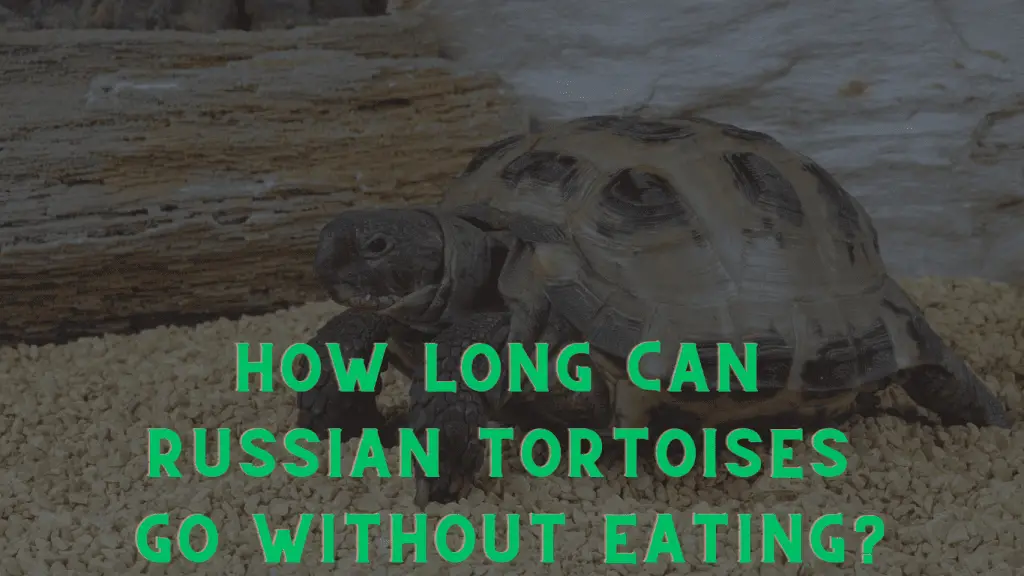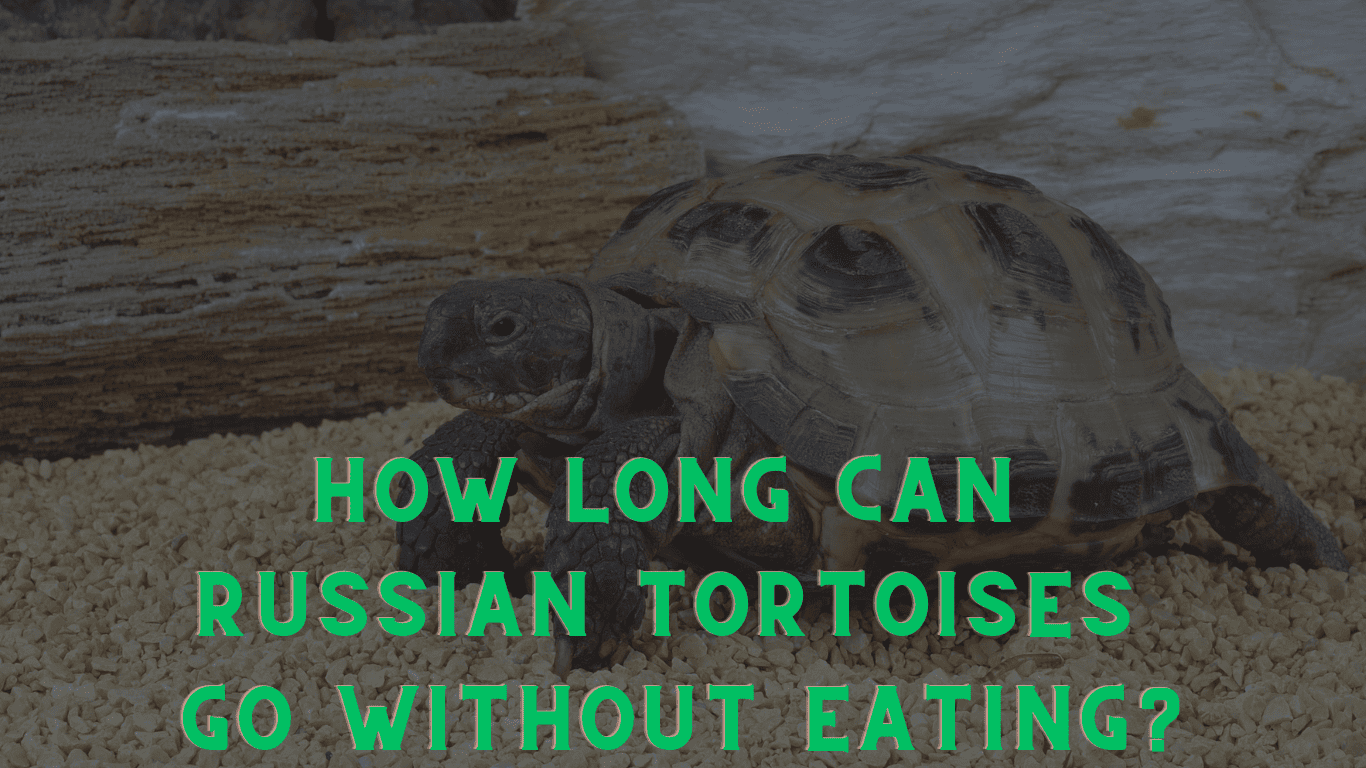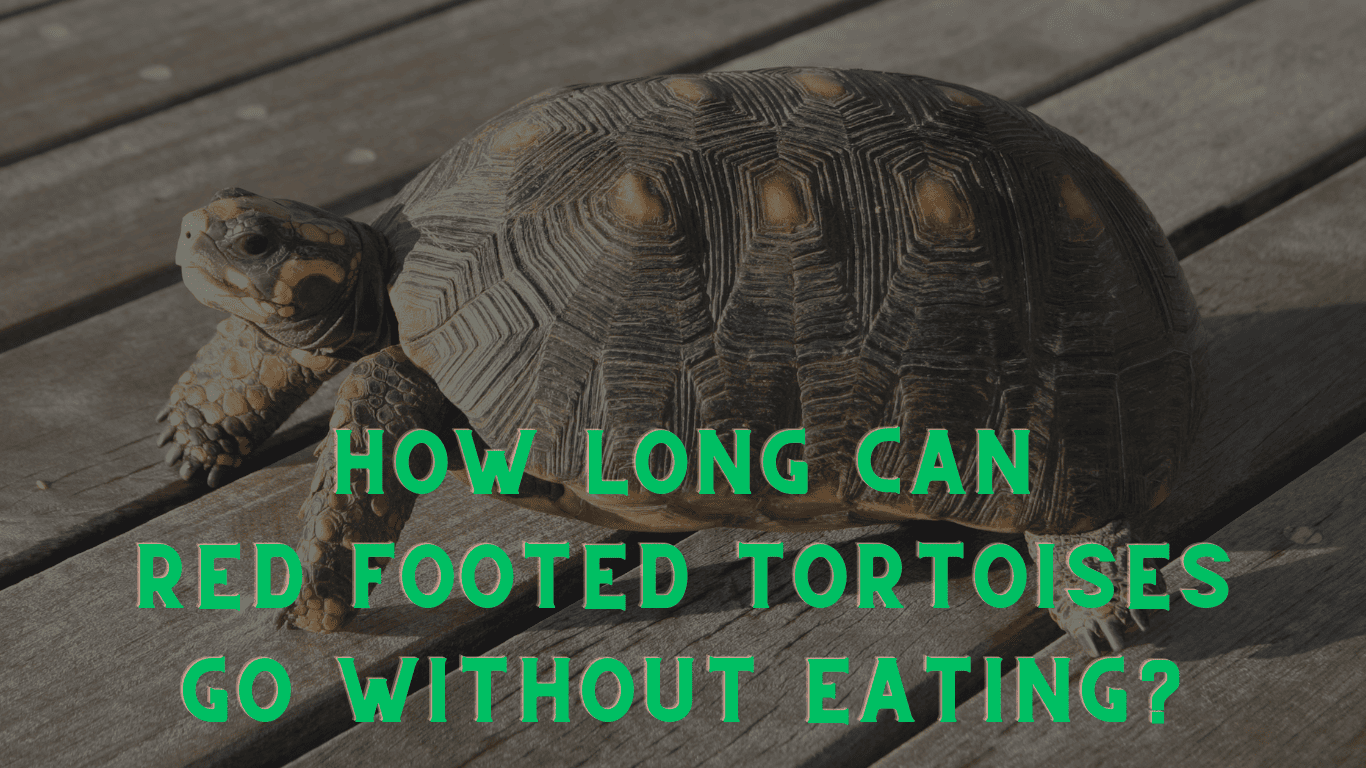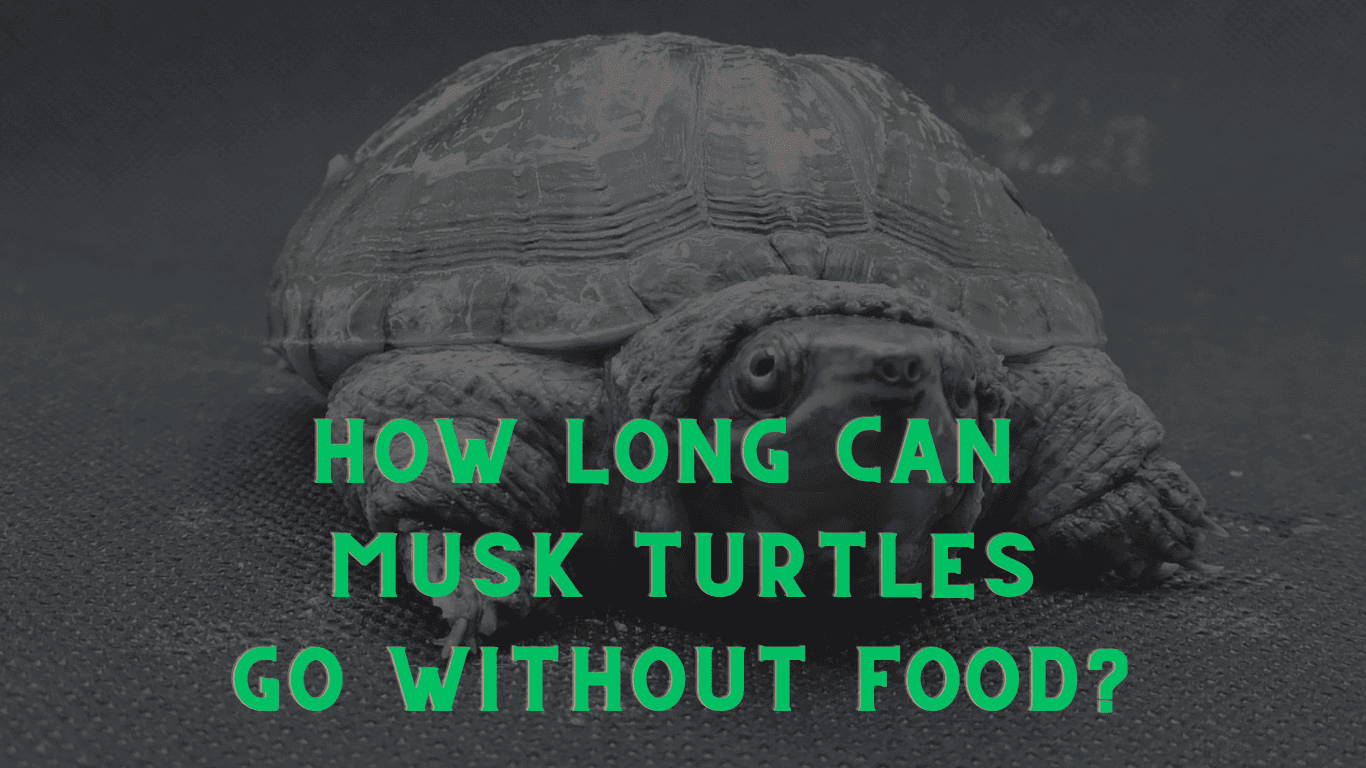Russian tortoises exhibit an impressive ability to survive without food for extended periods, a survival skill influenced by several factors. On average, a robust Russian tortoise can sustain itself for up to 3 months (90 days) without food, while some healthy adults have been known to manage between 3 to 6 months of fasting.
Remarkably, some can skip a day without difficulty, and a well-nourished adult tortoise can comfortably last a week without meals.
However, it’s essential to remember that the most extended durations are exceptional cases, where an adult tortoise in good health, given ample water supply and a conducive environment, can endure from six months to a staggering three years without food.
Despite their ability to cope without food for extended periods, it is not advisable to intentionally withhold food from these resilient creatures. If a tortoise abstains from eating, it might indicate an underlying health concern. Therefore, a consultation with a veterinarian is crucial to ensure the tortoise’s health and well-being.
The Resilience of Russian Tortoises

Russian tortoises have a remarkable ability to go without food for extended periods. This capability, however, varies greatly depending on several factors. On average:
A robust Russian tortoise can sustain itself for up to 90 days (3 months) without food.
Healthy adults can demonstrate even greater resilience:
Some well-nourished adult tortoises have been known to manage between 3 to 6 months of fasting.
Remarkably, some tortoises can skip a day without difficulty, and a well-fed adult tortoise can comfortably last a week without meals. However, these durations are uncommon and are seen in tortoises living in optimal conditions.
The Exceptional Cases
Russian tortoises’ survival skills genuinely shine in exceptional cases where they endure without food for extended periods. Given ample water supply and a conducive environment, a healthy adult tortoise can go from:
Six months to a staggering three years without food.
These durations, while fascinating, should not be considered the norm. It’s important to note that each tortoise’s health and environmental factors significantly affect their ability to go without food. Not all tortoises can survive for such extended periods without eating.
The Health Risks of Starvation
Despite Russian tortoises’ resilience, withholding food from them for extended periods is not recommended. Their ability to survive without food for months does not mean they should be made to do so. Long-term fasting can lead to malnutrition and health issues.
“While tortoises can endure long periods without food, it does not mean they should. Extended fasting can potentially lead to malnutrition and other health problems.”
If a tortoise refrains from eating, it could signify an underlying health concern. Tortoises might sometimes refuse food due to environmental stress, such as incorrect temperatures or unsuitable habitats. It’s also worth noting that some illnesses can cause a lack of appetite in tortoises.
What to Do if Your Tortoise Isn’t Eating
Should you find your tortoise skipping meals or losing interest in food, it’s essential to act promptly. An abrupt change in a tortoise’s eating habits warrants immediate attention.
“An abrupt change in your tortoise’s eating habits can indicate health issues and should be taken seriously.”
Firstly, review the tortoise’s living conditions. Ensure the habitat’s temperature and lighting are correct, as improper conditions can affect the tortoise’s appetite. You can also try introducing new, healthy foods to stimulate their interest.
If changes in diet and living conditions don’t help, it is crucial to consult with a veterinarian. A health professional can check for underlying health issues and recommend the necessary care and treatment.
A Balanced Diet: The Key to a Healthy Tortoise
In the wild, Russian tortoises are known to eat various plants and flowers. Providing them with a similar diet in captivity mimics their natural environment and ensures they get the necessary nutrients.
“A balanced and varied diet, mimicking what they’d eat in the wild, is key to a healthy and happy Russian tortoise.”
This means a diet abundant in leafy greens, vegetables, and a small amount of fruits. Russian tortoises also benefit from dietary supplements like calcium and vitamins, which can aid their overall health and shell development.
Tips for Keeping Your Russian Tortoise Healthy
The best way to prevent your tortoise from enduring long periods without food is to keep them healthy. Here are some tips to ensure your Russian tortoise’s well-being:
- Provide a suitable habitat: Make sure your tortoise has ample space to move and the habitat replicates its natural environment as closely as possible.
- Ensure proper temperature and lighting: Correct temperatures and lighting play a significant role in their appetite and overall health.
- Regular health check-ups: Regular visits to a vet specializing in reptiles can help detect and treat any potential health issues early.
Following these guidelines, you can ensure your Russian tortoise remains healthy and active, reducing the chances of prolonged periods without food.
“A healthy tortoise is a happy tortoise, and providing the right care and attention can significantly enhance their quality of life.”
Your Russian tortoise will live a long, healthy life with proper care and nutrition. If you’re looking for more tips on caring for Russian tortoises, check out our other articles on Reptiles Hub.




Leave a Reply